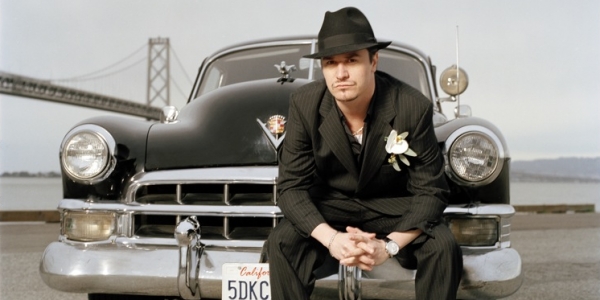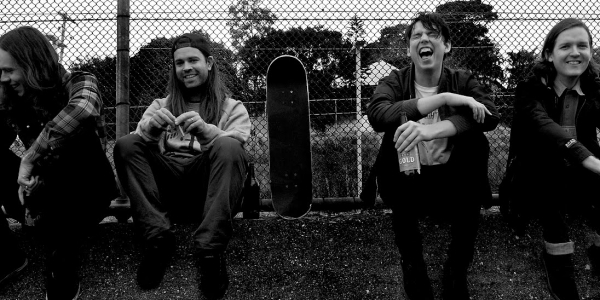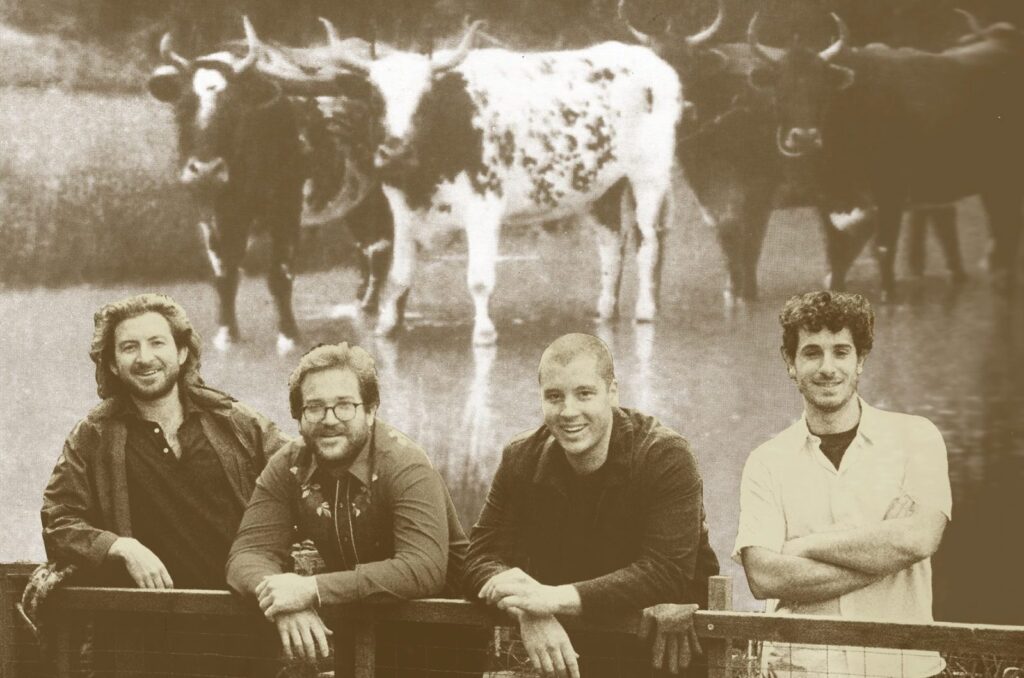Mondo Cane came about because Patton was living in Italy and trying to wrap his ears around the language. “It was super exotic to my ears, so one of the ways to help me learn the language was to make tapes – this is back in the era of cassette tapes! – I would make tapes of the radio, and there was this one radio station that played vintage, golden-era stuff. I would just take a 90 or 120 minute tape, tape it ’til it ran out, turn it over and keep going. Whatever was coming off the radio, I would tape it. And when I went home to America I’d put the tapes on in the background.” The music started to seep into Patton’s consciousness, and before he knew it the exercise had gone from simply a language one to a musical one. “I was like, ‘Man, this music’s fuckin’ amazing!’ When you fall in love with something, how do you describe how?”
The next step was to figure out how to present this music to the world. In the beginning Patton had a list of around 150 tunes that he felt he could do justice to. “Then you whittle them down, whittle them down and keep whittling them down. Then you want variety, you want this composer and that composer, and you try to paint the kind of brush strokes that you envision. So you have to eliminate certain things that are fantastic but could maybe be saved for later or something like that. And once you decide that, it’s ‘Okay… who am I gonna get to help me?'”
Daniele Luppi helped him to take the arrangements that were floating about in his head and distill them into sheet music, “to make it intelligible to the rest of the world,” and then the search for band members began. All 40 or so of them. “That’s a whole other set of dramas and phone calls! There’s a selection process: what about this guy? What about that guy? And there are so many great musicians out there. That was kind of an eye-opening part of the whole process: how many choices I actually had. And once you make those choices, hey, there’s peoples’ schedules! Maybe he’s this guy’s perfect person to play Theremin but he’s not available so you’ve got to go to plan B. There’s literally sinkholes at every division. Every single time we do this, you don’t know what’s going to happen. On this tour I feel very fortunate that I’ve kept the band pretty much intact except for a couple of positions from the last time we were there.”
Mondo Cane isn’t the first time Patton has sung in a language other than English – hell, he’s even been known to sing without words at all. “I have another band, Fantomas, where I chose not to use words at all because I thought they’d get in the way. I listen to, say, Indian music, and of course I don’t understand a word they’re saying. It’s still music, and music does not really have to include a language that you understand. It doesn’t need to be words. Words can sometimes be a hindrance, in my opinion. Even though I understand what I’m saying, I fall in love with the lyricism of it and the sound of the voice, as opposed to the message it may be conveying.”
Next up for Mondo Cane is another album featuring songs that didn’t make the first but which are already part of the live set. “I just need to clear some space and finish it. When we play live it’s about 25 tunes, 22, something like that, and on the record there’s like ten, so you’ll hear basically the whole second record if you come and see the show. And I kind of planned it that way. On the first record I chose it based on our live set, which was basically the length of two records. So I chose the first record knowing there was going to be a second.”
And what of Patton’s other band – well, one of many – Faith No More? Their recent run of reunion shows was unique for somehow avoiding feeling like a big old nostalgia trip.
“Right now we have no plans whatsoever,” Patton says matter-of-factly. “Live, recording or anything. We’ve done what we set out to do with the reunion, and it’s all great, but it’s just ‘Let’s see what happens next.’ And I think you need to take a pause to actually reflect on something like that, because otherwise we could just keep playing, and we’re very conscious of overdoing it, y’know, milking material that’s so old. You can only do that for so long, and I feel that we’ve done pretty well. The whole band’s naturally came to this conclusion, so now we’re just sitting tight. It wasn’t an money grab. It’s funny to say, but we all kind of reconnected, and after quite a long time we all kinda looked at each other and were like, ‘Man! We actually spent half of our lives together!’ It’s interesting to see it through that set of glasses as opposed to the ones you wore back then. I suppose at least personally speaking I’ve grown up a lot since then, and I think I approach the music differently, and I felt better about the music than I did then.”
BY PETER HODGSON







